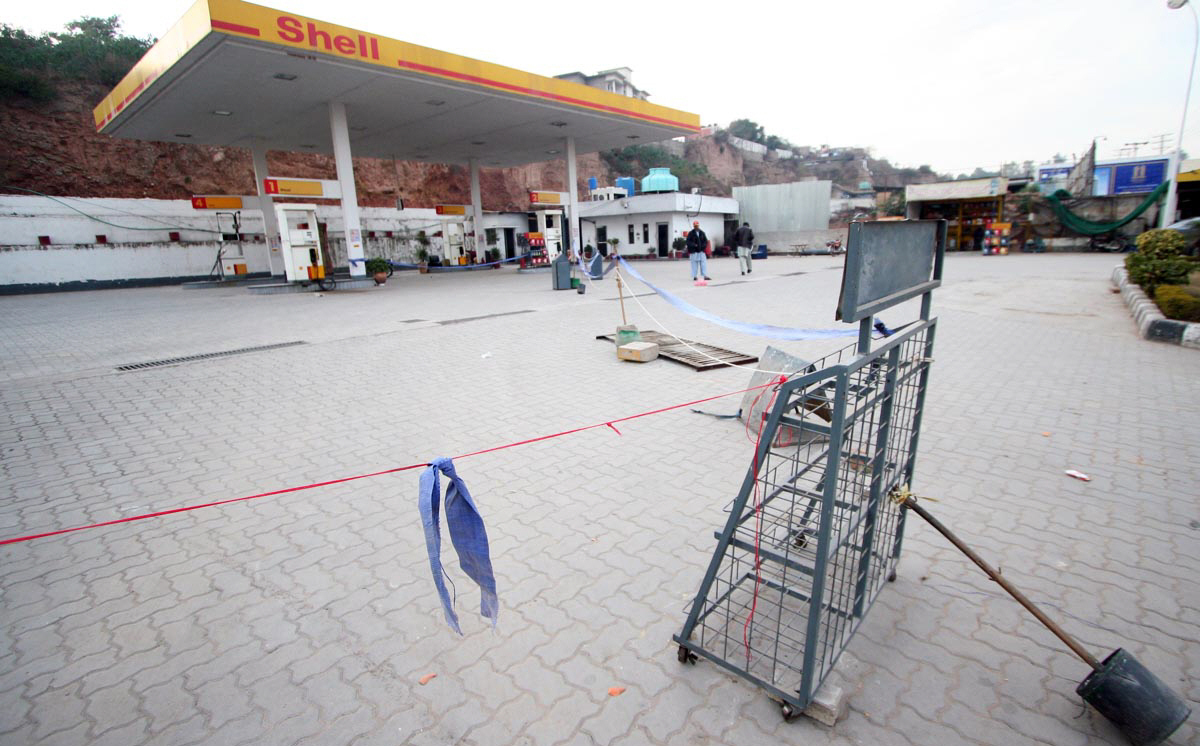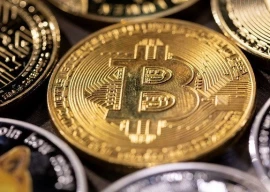
This was supposed to have been a good month. Lower global oil prices were finally starting to be felt in Pakistan’s energy supply chain.
Prices of petrol and cost of power production were all supposed to go down. Power production should have gone up. Blackouts should have decreased. Industrial and commercial activity should have picked up just as inflation started decreasing.
But what we got instead were massive lines running for miles waiting for fuel, a severe gas shortage, and continued power outages. Did I mention that power outages are about to get a lot worse? How did all of this happen? The short answer would be government interference.
There are several causes that led to the current, acute phase of the much longer chronic energy crisis we face. Everything from a truck collision on a highway outside Karachi to fog in Punjab to delays in ships arriving at the port were immediate causes of the crisis. But the real, long-run reason is that our energy supply chain is extremely brittle, and it has become that way because the government owns most of it and wants to promise the people magic.
The crisis is complex and interconnected, so it is helpful to talk about it in segments. Let us focus with the part of the energy chain that is currently the most visibly affected — retail petrol pumps.
About 65% of all petrol pumps in Pakistan are either directly owned by or supplied fuel by Pakistan State Oil (PSO), the government-owned company that dominates the country’s energy sector. The remainders (and a growing percentage) are owned by the private sector.

These people are required by law to have 20 days’ worth of fuel in reserves at all times. Most of these companies and petrol pumps have nowhere near that level of capacity to hold inventories, let alone actually have that much fuel in reserves. So is that the problem? Not really.
The real problem for the oil companies is the way the government mandates that prices are determined. The Oil and Gas Regulatory Authority (Ogra) determines what the price should be, based on the weighted average cost, every month. It also mandates that oil companies make a fixed profit per litre of fuel sold. Ordinarily, I would argue that fixed margins are a bad idea, but when one company (PSO) has so much market power, I can see the logic.
However, when you combine fixed profit margins with sudden price changes, the incentive to hold large inventories vanishes, particularly in times of rapidly declining global prices such as the situation we face today. Here is why. Let’s say I buy oil from the international market at Rs90 and the government allows me to sell at a Rs5 profit. I buy a million litres and sell half of that in two weeks and have the other half left over.
Suppose the international price falls and the government mandates that I sell my new fuel at Rs80. For the new fuel I buy, that is no problem. I am buying cheaper fuel from the international market and making a Rs5 per litre profit. But what about the half million litres that I bought at Rs90. I still have to sell that at Rs80, which is a Rs10-per-litre loss that I have to book that all but wipes out my profit from the new oil. So why would I keep any reserves if I know that prices are falling?
The solution to this little conundrum is to deregulate prices, but keep government rules on profit margins. If oil companies do not have to face sudden, government-mandated prices, they can gradually adjust prices downwards based on the average cost of oil in their inventories. That would then remove the disincentive to have inventories during falling prices, and the effect of global prices would more smoothly be passed on to consumers.
Of course, this would also mean that the prime minister would not get to address the nation and announce oil prices as though he made them happen. However, I suspect, this is the reason we have the current system in the first place.
The writer is a staff correspondent
Published in The Express Tribune, January 19th, 2015.
Like Business on Facebook, follow @TribuneBiz on Twitter to stay informed and join in the conversation.
COMMENTS (9)
Comments are moderated and generally will be posted if they are on-topic and not abusive.
For more information, please see our Comments FAQ

1725612926-0/Tribune-Pic-(8)1725612926-0-165x106.webp)















@Ahmed: Sure there was a problem when prices were going up. Did you not notice that petrol stations would shut down the day before the monthly price change was to take effect? That happened because the petrol station could make more money just by waiting one day.
Consumers also respond to price signals by timing their purchases so that they enjoy the best price.
Set the price free. Socialism was an idealogy for another time and place.
"they can gradually adjust prices downwards based on the average cost of oil in their inventories."
This is exactly what OGRA does. There is nothing sudden in it as every thing and the mechanisms are clearly predifined for calculating the fuel prices. Any upward/downward move in international markets can be, and should be, tabulated and hence know before hand. By the way, since when the businessmen have become so upright that they wouldn't go for more profits if given a free hand? Markets should be allowed to function freely as per the rules of economics, supply and demand, but only if there are ideal competitive markets run by honest businessmen. That is why almost every country of the world, including the king of Capitalism, USA, has "anti-monopoly", "anti-competition", and dozens of regulatory authorities regulating all sorts of businesses/sectors for controlling the unlimited greed of the business fraternity. In Pakistan OGRA plays the regulatory role for fuel sector. Why the author wants to end its regulatory role?
Strange how such one-sided articles find a place in esteemed newspapers...where do such detailed calculations vanish when prices are going up ??
Sir, when prices go up in the international market, it should be regulated, and in reverse case it should be dereugulated. It will make the situation worse, I bet. Did you just try to say it is a strategy.
Daily price adjustment of fuel is the answer like all civilized countries
In a country such as Pakistan where laws to protect consumers are non existent your suggesting the oil prices must be deregulated and the individual oil companies should be allowed to set the price but the government fixes profit margin. Of course all over we have some fine examples of multinationals and companies self regulating the industry and never twisting the rules to make huge profits. Please do not insult our intelligence by proposing such preposterous schemes. The supply chain might indeed be non resilient but for once the government should fully investigate and find the problem to be fixed. Any policy made should be implemented. by the way, what was the behavior of petrol pumps when OGRA issues increase in price notices?
@Ahmed
Spot on! .... When prices are increasing, this "hoarding" becomes an asset and all is hunky dory as only consumers are being fleeced.
Now, all these analysts are out on supply chain inefficiencies, inventory losses and deregulation, trying to rationalize the greed of oil industry!
The underlying problem of circular debt - people unwilling to pay or electicity onsu,ption and overnment not having enough money to subsidize the circular debt repeatedly would not be solved by deregulation. The petrol lines may not have happened but the power blackouts and gas shortages would still occur.
It was never a problem when prices were going up - no articles against deregulations - oil people were happy minting money out of poor consumers